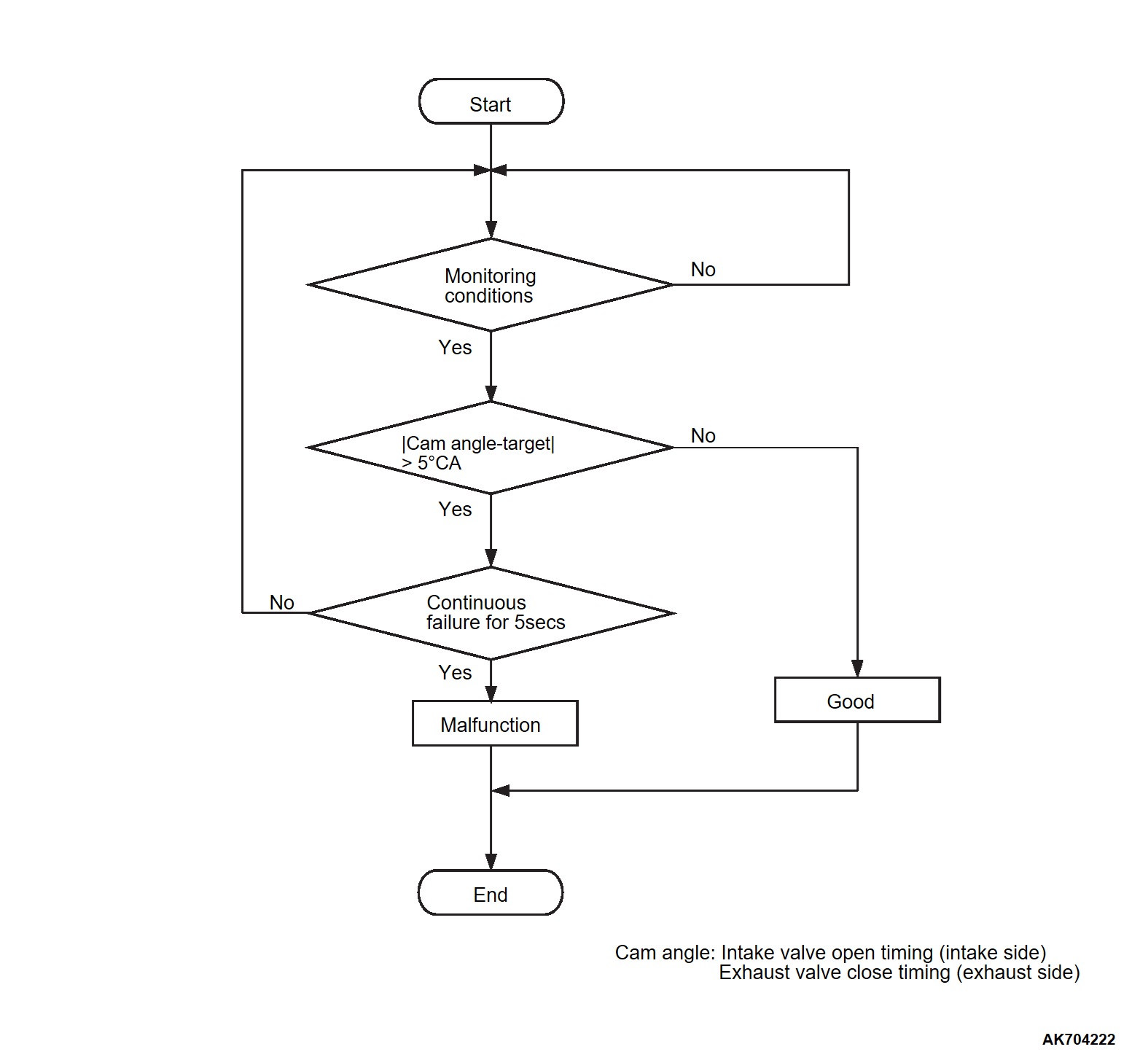DTC P0014: Exhaust Variable Valve Timing System Target Error
TECHNICAL DESCRIPTION
- The ECM controls the spool valve position of the exhaust engine oil control valve corresponding to the driving condition of the engine and continuously changes the phase of the exhaust camshaft.
- The phase angle of the exhaust camshaft is computed from the signal patterns of the crank angle sensor and exhaust camshaft position sensor.
DESCRIPTIONS OF MONITOR METHODS
- The difference between the actual exhaust valve closing timing and the exhaust valve target closing timing is over the specified value.
MONITOR EXECUTION
- Continuous
MONITOR EXECUTION CONDITIONS (Other monitor and Sensor)
Other Monitor (There is no temporary DTC set in memory for the item monitored below)
- Not applicable
Sensor (The sensor below is determined to be normal)
- Camshaft position sensor
- Crankshaft position sensor
- Engine coolant temperature sensor
- Throttle position sensor
- Engine oil control valve
DTC SET CONDITIONS
Check Conditions
- More than 20 seconds have passed since the engine starting sequence was completed.
- Engine speed is more than 1,188 r/min.
- Engine coolant temperature is higher than 76°C (169°F).
Judgment Criterion
- The difference between the actual exhaust valve opening timing and the exhaust valve target opening timing is more than 5 degrees for 5 seconds.
FAIL-SAFE AND BACKUP FUNCTION
- None.
TROUBLESHOOTING HINTS (The most likely causes for this code to be set are: )
- Exhaust engine oil control valve failed.
- Harness damage in exhaust engine oil control valve circuit or loose connector contact.
- Failed timing sprocket operation.
- Clogged oil passage.
- Exhaust camshaft failed.
- ECM failed.
DIAGNOSIS
STEP 1. Using scan tool (M.U.T.-IIISE), check data list item 39: Exhaust MIVEC phase angle.
| caution | To prevent damage to scan tool (M.U.T.-IIISE), always turn the ignition switch to the "LOCK" (OFF) position before connecting or disconnecting scan tool (M.U.T.-IIISE). |
(1) Connect scan tool (M.U.T.-IIISE) to the data link connector.
(2) Start the engine.
(3) Set scan tool (M.U.T.-IIISE) to the data reading mode for item 39, Exhaust MIVEC phase angle.
- When the idle operation with no load, -2.5 to 6.5 °CA (ATDC).
- When the high load operation, Increases (retards).
(4) Turn the ignition switch to the "LOCK" (OFF) position.
Are they operating properly?
STEP 2. Check the exhaust engine oil control valve.
STEP 3. Check of harness damage in OCVE line between exhaust engine oil control valve connector and ECM connector.
Is the harness wire in good condition?
STEP 4. Check of harness damage in power supply line between MFI relay connector and exhaust engine oil control valve connector.
Is the harness wire in good condition?
STEP 5. Check exhaust camshaft sensing ring.
STEP 6. Check exhaust variable valve timing sprocket operation mechanism for being stuck.
STEP 7. Check oil passage of exhaust variable valve timing control system for being clogged.
![[Previous]](../../../buttons/fprev.png)
![[Next]](../../../buttons/fnext.png)



